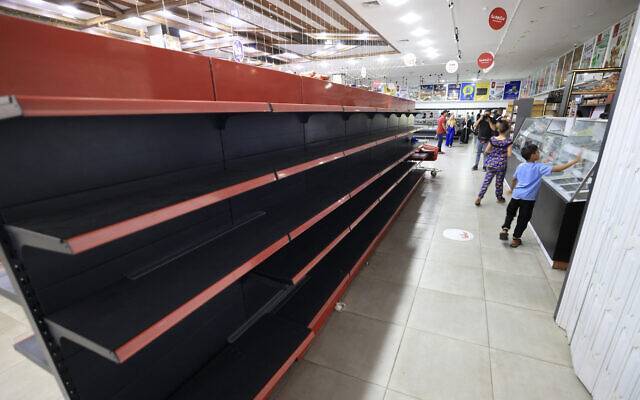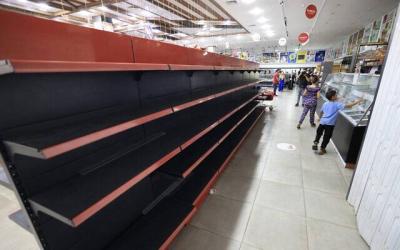Most shelves were empty in Hassan Abu Shabab's store in the center of Khan Younis, located in southern Gaza, which has seen an influx of tens of thousands of displaced people from the north of the territory besieged by Israel. Only a few bottles of cooking oil and cans of tomato paste remained on one shelf, alongside some sweets, toilet paper, dishwashing liquid, and other inedible goods. There was no bread, flour, sugar, rice, meat, or cheese. Outside, two empty refrigerators that were mostly filled with soft drinks stood idle. Abu Shabab stated about his empty store on Monday, "Before the war, we used to sell goods worth about 1,000 shekels ($260) daily. Today, we have nothing to sell. People have money, but there is nothing we can sell." He added, "I go to all the places around Khan Younis looking for goods, but there is nothing."
Outside his store, Um Ibrahim Al-Agha, a displaced woman, sat down to rest from her daily desperate search for food. She said, "You go now to the largest stores in Khan Younis and find nothing you need. There is no flour, no sugar, no rice, no salt, or anything to offer your child." She continued, "We went to one store and didn’t find a single packet of biscuits. We found toilet paper and diapers. Are we supposed to eat that?" The shortage of food, water, fuel, and other goods has worsened since Israel launched a military attack and imposed a blockade on the Gaza Strip following attacks by the Islamic Resistance Movement (Hamas) on its southern towns on October 7.
**With the scent of sweat**
As residents of northern Gaza flee from Israeli airstrikes and ground forces that are now surrounding the city of Gaza and dividing the territory, Khan Younis has filled with temporary tent cities, while displaced families rushed to schools, hospitals, and even parking lots. Philip Lazarini, the Commissioner-General of the United Nations Relief and Works Agency for Palestine Refugees (UNRWA), stated that facilities managed by the agency are severely overcrowded, like the school he visited yesterday, which has now become a shelter for the displaced. In statements via video link during a press conference for donor countries, he said, "The humidity in these hallways comes from people. You can smell the sweat of individuals in the corridors. It's beyond limits. People continue sleeping here because there is a United Nations flag."
Some aid trucks are allowed to enter Gaza from Egypt through the Rafah border crossing, but their number is insufficient to meet growing needs, according to relief groups. Lazarini noted that only about 39 percent of food needs are being met. He said, "Individuals in one governorate receive one or two loaves of bread and a can of tuna for the family, while in Rafah, they receive one or two loaves of bread and a can of cheese for the family." There are few places that still have a stock of food, but it is only a matter of time before these stocks run out unless new supplies arrive.
In the city of Rafah in southern Gaza, a group of residents was preparing meals of rice and meat donated by a benefactor who wished to remain anonymous to feed the displaced, but the stock is quickly depleting. Cook Abu Mohammed stated that residents are preparing three thousand meals daily and are using firewood to cook the meals, wrapping them in aluminum foil for distribution to those in camps and shelters. He added, "We are cooking with wood because there is no electricity or gas. In two days, we will have to stop because the stock is running out." He further urged, "Open the borders, open the borders. Send us rice and ghee, send us salt and sugar. We have nothing."




